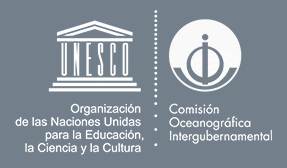|
Caribe Insular
|
América Central y del Norte |
Suramérica |
Caribe Insular |
América Central y del Norte |
Suramérica |
Mostrando 81-90 de 98 resultados
 indicates that the Project Profile has been verified and it’s being managed by the project’s profile manager.
indicates that the Project Profile has been verified and it’s being managed by the project’s profile manager. -
Gender Mainstreaming Initiative Mainstreaming Gender Equality in Fisheries in the Caribbean
 Descripción breve:The Mainstreaming Gender Equality in Fisheries in the Caribbean project aims to improve sustainable fisheries for vulnerable populations in the Caribbean, particularly women and girls, in order to advance gender issues, decent work and youth involvement in sustainable development of fisheries, and comply with the policy statement issues in the 8th Special Meeting of the Ministerial Council of the Caribbean Regional Fisheries Mechanism, which states the following: “the Council accepted that international and national norms regarding issues pertaining to gender, youth, and decent work be adhered to, and be incorporated into all CRFM policies, protocols, programmes and plans”. In this context, UNDP, as a strong UN system organization, already well established in the region, and with strong networks and multi-country projects and programmes across and between the Caribbean SIDS, will implement the resources from Global Affairs Canada, through an existing agreement with CRFM as a delivery mechanism with its 17 AOSIS member states. In this regard, the project will benefit the fisheries sector of the 17 CRFM Member States, specifically fisherfolk, national fisheries agencies and regional organisations charged with supporting fisheries management development in those countries Project Strategy Rationale The project will unite efforts within the already existing CLME+ sub-project “EAF for the Eastern Caribbean Flyingfish” and the Interim Fisheries Coordination Mechanism to build upon these activities, to include gender mainstreaming activities, indicators and results. Given the over-arching goal of the CLME+ project of maximized, sustainable contributions from the resource to human well-being in the region, focus will be on implementation of gender mainstreaming activities, within the components of the already existing flyingfish sub-project, noting that the flyingfish supports important small-scale fisheries in the region, where women have an important role in the processing sector. Outcomes, Outputs and activities Outcome 1. Improved governance for gender – responsive fisheries planning and decision making. Empowering fishery organizations to actively participate in policy dialogue and fisheries governance mechanisms, enabling meaningful participation of women, and youth, and organizing age and gender-sensitive management and leadership trainings. Activities under this outcome are: 1. Determine what gender-related data/research would be most appropriate at this time for “spring-boarding” the development of an evidenced-based gender mainstreaming strategy for fisheries and aquaculture 2. Based on assessments of institutional arrangements (policies, legislation, plans, etc.) to identify the decent work and gender issues/gaps: initiate programmes to create awareness about them; and, devise a strategy/plan for its implementation. 3. Collaboration with CARICOM Secretariat and UN bodies, including UN Women and FAO to lead the effort to develop a gender evaluation tool (or adapt existing ones) to undertake the assessment mentioned. 4. Coordinate identification / appointment of gender focal point in national fisheries authorities, fisheries advisory committees, sustainable ocean governance teams, fisherfolk organisations and other fisheries related agencies and institutional arrangements; and, support their participation in gender workshops or initiatives to further build their capacity to address gender issues, including youth and decent work. 5. Promote application of social science and gender expertise requirements to the recruitment of new staff in CRFM and national and regional fisheries organisations. 6. Develop/adapt and adopt a core set of appropriate indicators in regional strategic programmes (to be used in CLME+ State of the Environment reporting and information portals) 7. Support countries with revision of fisheries and other sector plans along the lines of Ecosystem Approach to Fisheries (EAF) enlightenment and through a gender, decent work and youth lens to ensure integration into the overall national framework(s), in place to address these social issues. 8. Review countries’ compliance with international instruments (such as CEDAW) in relation to fisheries Outcome 2. Enhanced national capacities for mainstreaming gender into fisheries management. Activities under these outcomes are: 1. Organise, in collaboration with appropriate national agencies, awareness training for CRFM and Fisheries Departments/ Division staff, as well as executives of fisherfolk organisations 2. Offer gender-aware capacity development such as fisherfolk leadership courses to actively address equity/equality issues 3. Assist with establishment of regional and national monitoring and evaluation systems to track gender equality and decent work achievements, as well as youth involvement 4. Capture and document traditional knowledge from men and women on aquatic living resource management and fishing techniques 5. Develop updated, broadened and gendered (as appropriate) management recommendations that take into account feasible options for enhanced livelihoods and human well-being 6. Develop, implement and evaluate business proposal aimed at increasing either market or livelihood opportunities from current levels, with special attention to the role of women 7. Train participants in 3 major fishing communities in new business and management skills during implementation phase of business proposalOrganización líder: CRFMDonante: Global Affairs CanadaID del proyecto: 00085866Alcance geográfico: Multicountry (regional)Estado del proyecto: OngoingLast Update: 20200316
Descripción breve:The Mainstreaming Gender Equality in Fisheries in the Caribbean project aims to improve sustainable fisheries for vulnerable populations in the Caribbean, particularly women and girls, in order to advance gender issues, decent work and youth involvement in sustainable development of fisheries, and comply with the policy statement issues in the 8th Special Meeting of the Ministerial Council of the Caribbean Regional Fisheries Mechanism, which states the following: “the Council accepted that international and national norms regarding issues pertaining to gender, youth, and decent work be adhered to, and be incorporated into all CRFM policies, protocols, programmes and plans”. In this context, UNDP, as a strong UN system organization, already well established in the region, and with strong networks and multi-country projects and programmes across and between the Caribbean SIDS, will implement the resources from Global Affairs Canada, through an existing agreement with CRFM as a delivery mechanism with its 17 AOSIS member states. In this regard, the project will benefit the fisheries sector of the 17 CRFM Member States, specifically fisherfolk, national fisheries agencies and regional organisations charged with supporting fisheries management development in those countries Project Strategy Rationale The project will unite efforts within the already existing CLME+ sub-project “EAF for the Eastern Caribbean Flyingfish” and the Interim Fisheries Coordination Mechanism to build upon these activities, to include gender mainstreaming activities, indicators and results. Given the over-arching goal of the CLME+ project of maximized, sustainable contributions from the resource to human well-being in the region, focus will be on implementation of gender mainstreaming activities, within the components of the already existing flyingfish sub-project, noting that the flyingfish supports important small-scale fisheries in the region, where women have an important role in the processing sector. Outcomes, Outputs and activities Outcome 1. Improved governance for gender – responsive fisheries planning and decision making. Empowering fishery organizations to actively participate in policy dialogue and fisheries governance mechanisms, enabling meaningful participation of women, and youth, and organizing age and gender-sensitive management and leadership trainings. Activities under this outcome are: 1. Determine what gender-related data/research would be most appropriate at this time for “spring-boarding” the development of an evidenced-based gender mainstreaming strategy for fisheries and aquaculture 2. Based on assessments of institutional arrangements (policies, legislation, plans, etc.) to identify the decent work and gender issues/gaps: initiate programmes to create awareness about them; and, devise a strategy/plan for its implementation. 3. Collaboration with CARICOM Secretariat and UN bodies, including UN Women and FAO to lead the effort to develop a gender evaluation tool (or adapt existing ones) to undertake the assessment mentioned. 4. Coordinate identification / appointment of gender focal point in national fisheries authorities, fisheries advisory committees, sustainable ocean governance teams, fisherfolk organisations and other fisheries related agencies and institutional arrangements; and, support their participation in gender workshops or initiatives to further build their capacity to address gender issues, including youth and decent work. 5. Promote application of social science and gender expertise requirements to the recruitment of new staff in CRFM and national and regional fisheries organisations. 6. Develop/adapt and adopt a core set of appropriate indicators in regional strategic programmes (to be used in CLME+ State of the Environment reporting and information portals) 7. Support countries with revision of fisheries and other sector plans along the lines of Ecosystem Approach to Fisheries (EAF) enlightenment and through a gender, decent work and youth lens to ensure integration into the overall national framework(s), in place to address these social issues. 8. Review countries’ compliance with international instruments (such as CEDAW) in relation to fisheries Outcome 2. Enhanced national capacities for mainstreaming gender into fisheries management. Activities under these outcomes are: 1. Organise, in collaboration with appropriate national agencies, awareness training for CRFM and Fisheries Departments/ Division staff, as well as executives of fisherfolk organisations 2. Offer gender-aware capacity development such as fisherfolk leadership courses to actively address equity/equality issues 3. Assist with establishment of regional and national monitoring and evaluation systems to track gender equality and decent work achievements, as well as youth involvement 4. Capture and document traditional knowledge from men and women on aquatic living resource management and fishing techniques 5. Develop updated, broadened and gendered (as appropriate) management recommendations that take into account feasible options for enhanced livelihoods and human well-being 6. Develop, implement and evaluate business proposal aimed at increasing either market or livelihood opportunities from current levels, with special attention to the role of women 7. Train participants in 3 major fishing communities in new business and management skills during implementation phase of business proposalOrganización líder: CRFMDonante: Global Affairs CanadaID del proyecto: 00085866Alcance geográfico: Multicountry (regional)Estado del proyecto: OngoingLast Update: 20200316
Fecha de Inicio: 2019-10-22
Fecha de Finalización: 2020-11-30
Documento Oficial del Proyecto : 5Página web:Project Profile Manager: Peter A Murray
Correo de contacto: peter.a.murray@crfm.int
Teléfono de contacto:Aliados: UNOPSBeca (USD): $322,034.00Co-financiación total (USD): $51,100.00(Co) financiación no proveniente de GEF: $51,100.00Países participantes:Barbados
Dominica
Grenada
Saint Lucia
Trinidad and Tobago
Saint Vincent and the Grenadines
Contribuciones al Programa de Acciones Estratégicas (PAE) CLME+ (2015-2025)
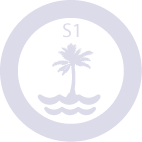
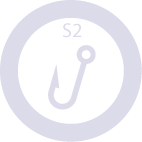
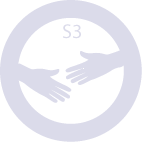
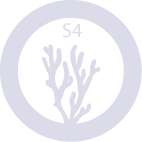
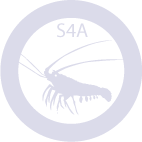

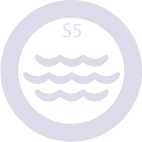
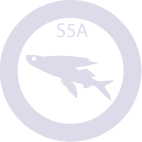
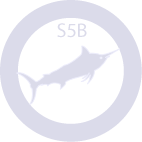
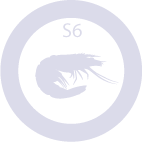 Please click on the colored SAP Strategy icon to obtain more information on the specific SAP Actions this initiative is contributing to1. Mejorar los arreglos regionales de gobernanza para la protección del medio ambiente marino
Please click on the colored SAP Strategy icon to obtain more information on the specific SAP Actions this initiative is contributing to1. Mejorar los arreglos regionales de gobernanza para la protección del medio ambiente marino
2. Mejorar los arreglos regionales de gobernanza para la pesca sostenible
3. Establecer y poner en marcha un mecanismo regional de coordinación de políticas para la gobernanza del ambiente marino, con enfoque inicial en los Recursos Marinos Vivos compartidos
4. Mejorar los arreglos de gobernanza para un manejo con enfoque ecosistémico de los arrecifes y sus sistemas asociados
4A. Mejorar los arreglos de gobernanza para la implementación de un enfoque ecosistémico para la pesca de la langosta espinosa
4B. Mejorar los arreglos de gobernanza para la implementación de un enfoque ecosistémico para la pesca del caracol reina
5. Mejorar los arreglos de gobernanza para la implementación de un enfoque ecosistémico para las pesquerías pelágicas
5A. Mejorar los arreglos de gobernanza para la implementación de un enfoque ecosistémico para las pesquerías del pez volador
5B. Mejorar los arreglos de gobernanza para la implementación de un enfoque ecosistémico para las pesquerías de grandes pelágicos
6. Implementar un manejo ecosistémico y el enfoque ecosistémico a la pesca (MBE/EEP) en la Plataforma Continental de Guayanas-Brasil, con referencia especial a las pesquerías de camarones y de peces de fondo
Contribuciones a la Agenda 2030 de Objetivos de Desarrollo Sostenible (ODS) de Naciones Unidas (ONU)
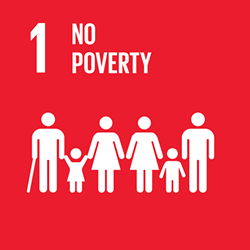
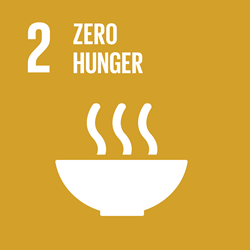
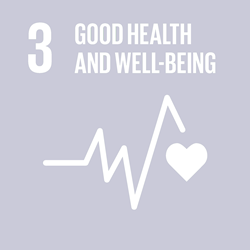
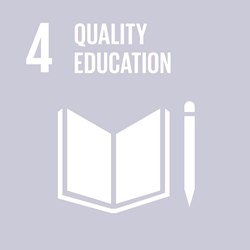
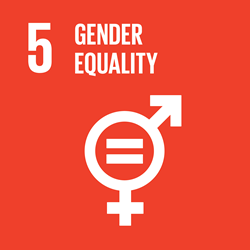
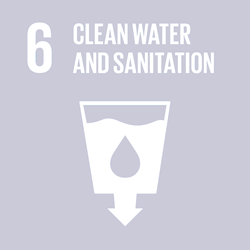
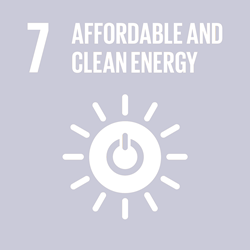
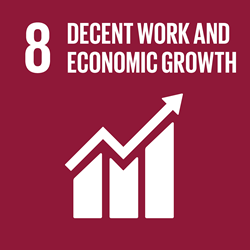
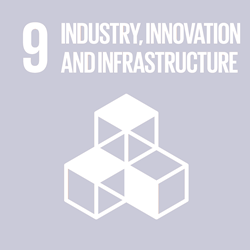
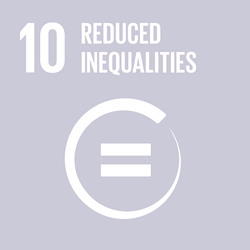
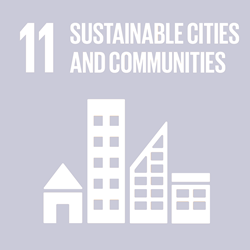
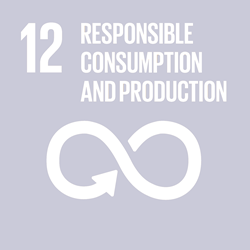
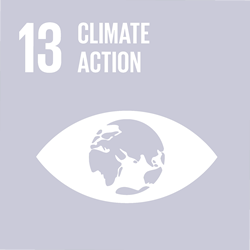
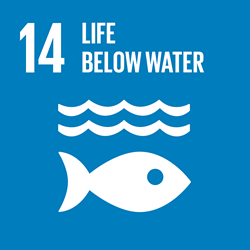
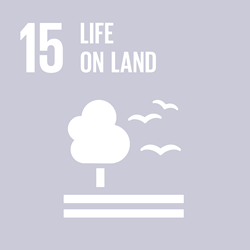
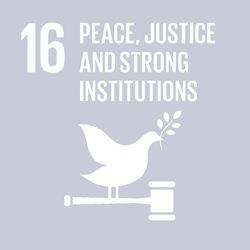
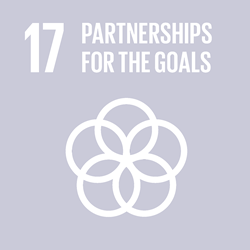
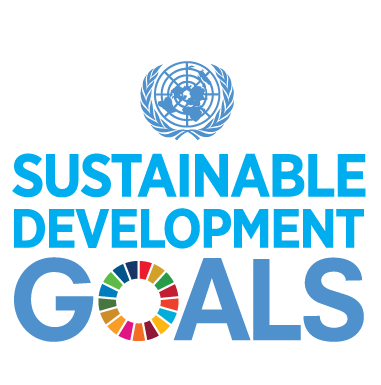 Please click on the SDG14 colored icon to see to which specific SDG14 targets this initiative is contributing.1. End poverty in all its forms everywhere
Please click on the SDG14 colored icon to see to which specific SDG14 targets this initiative is contributing.1. End poverty in all its forms everywhere
1.1 By 2030, eradicate extreme poverty for all people everywhere, currently measured as people living on less than $1.25 a day2 End hunger, achieve food security and improved nutrition and promote sustainable agriculture
2.1 By 2030, end hunger and ensure access by all people, in particular the poor and people in vulnerable situations, including infants, to safe, nutritious and sufficient food all year round3 Ensure healthy lives and promote well-being for all at all ages
4 Ensure inclusive and equitable quality education and promote lifelong learning opportunities for all
5 Achieve gender equality and empower all women and girls
5.1 End all forms of discrimination against all women and girls everywhere6 Ensure availability and sustainable management of water and sanitation for all
7 Ensure access to affordable, reliable, sustainable and modern energy for all
8 Promote sustained, inclusive and sustainable economic growth, full and productive employment and decent work for all
8.1 Sustain per capita economic growth in accordance with national circumstances and, in particular, at least 7 per cent gross domestic product growth per annum in the least developed countries9 Build resilient infrastructure, promote inclusive and sustainable industrialization and foster innovation
10 Reduce inequality within and among countries
11 Make cities and human settlements inclusive, safe, resilient and sustainable
12 Ensure sustainable consumption and production patterns
13 Take urgent action to combat climate change and its impacts
14. Conservar y utilizar en forma sostenible los océanos, los mares y los recursos marinos para el desarrollo sostenible
14.7 De aquí a 2030, aumentar los beneficios económicos que los pequeños Estados insulares en desarrollo y los países menos adelantados obtienen del uso sostenible de los recursos marinos, en particular mediante la gestión sostenible de la pesca, la acuicultura y el turismo14.b Facilitar el acceso de los pescadores artesanales a los recursos marinos y los mercados15 Protect, restore and promote sustainable use of terrestrial ecosystems, sustainably manage forests, combat desertification, and halt and reverse land degradation and halt biodiversity loss
16 Promote peaceful and inclusive societies for sustainable development, provide access to justice for all and build effective, accountable and inclusive institutions at all levels
Otros compromisos regionales o globales
Regional Emerging Issues
- Sustainable Financing and Management of Eastern Caribbean Marine Ecosystems
Descripción breve:The objective of the Sustainable Financing and Management of Eastern Caribbean Marine Ecosystem Project is to contribute to enhancing the long-term sustainability of protected area networks in the Eastern Caribbean sub-region by: 1) establishing sustainable financing mechanisms; 2) strengthening of the marine protected area networks; and 3) deploying a regional monitoring and information system for the protected area networks. There are four components to the project. The first component of the project is establishment of sustainable financing mechanisms. The aims of this component will be to: facilitate the establishment and capitalization of a regional biodiversity fund; and facilitate the participating countries to establish the respective National Protected Area Trust Fund (NPATF). The second component of the project is to strengthening and phased expansion of marine protected area networks. The third component of the project is to deployment of a regional monitoring and information system. The fourth component of the project is to project management and coordination. The aim of this component will be to carry out the coordination and supervision of the project at the regional and participating country levels.Organización líder: WBDonante: GEFID del proyecto:Alcance geográfico: Multicountry (regional)Estado del proyecto: CompletedLast Update: 20200314
Fecha de Inicio: 2011-07-12
Fecha de Finalización: 2017-05-16
Documento Oficial del Proyecto : 5Página web:Project Profile Manager: GEF IW:LEARN
Correo de contacto: info@iwlearn.org
Teléfono de contacto:Aliados: OECS, TNCBeca (USD): $8,750,000.00Co-financiación total (USD): $14,800,000.00(Co) financiación no proveniente de GEF:Países participantes:Grenada
Saint Lucia
Antigua and Barbuda
Saint Kitts and Nevis
Saint Vincent and the Grenadines
Contribuciones al Programa de Acciones Estratégicas (PAE) CLME+ (2015-2025)









 Please click on the colored SAP Strategy icon to obtain more information on the specific SAP Actions this initiative is contributing to1. Mejorar los arreglos regionales de gobernanza para la protección del medio ambiente marino
Please click on the colored SAP Strategy icon to obtain more information on the specific SAP Actions this initiative is contributing to1. Mejorar los arreglos regionales de gobernanza para la protección del medio ambiente marino
2. Mejorar los arreglos regionales de gobernanza para la pesca sostenible
3. Establecer y poner en marcha un mecanismo regional de coordinación de políticas para la gobernanza del ambiente marino, con enfoque inicial en los Recursos Marinos Vivos compartidos
4. Mejorar los arreglos de gobernanza para un manejo con enfoque ecosistémico de los arrecifes y sus sistemas asociados
4A. Mejorar los arreglos de gobernanza para la implementación de un enfoque ecosistémico para la pesca de la langosta espinosa
4B. Mejorar los arreglos de gobernanza para la implementación de un enfoque ecosistémico para la pesca del caracol reina
5. Mejorar los arreglos de gobernanza para la implementación de un enfoque ecosistémico para las pesquerías pelágicas
5A. Mejorar los arreglos de gobernanza para la implementación de un enfoque ecosistémico para las pesquerías del pez volador
5B. Mejorar los arreglos de gobernanza para la implementación de un enfoque ecosistémico para las pesquerías de grandes pelágicos
6. Implementar un manejo ecosistémico y el enfoque ecosistémico a la pesca (MBE/EEP) en la Plataforma Continental de Guayanas-Brasil, con referencia especial a las pesquerías de camarones y de peces de fondo
Contribuciones a la Agenda 2030 de Objetivos de Desarrollo Sostenible (ODS) de Naciones Unidas (ONU)
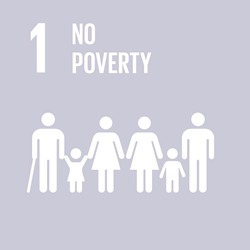
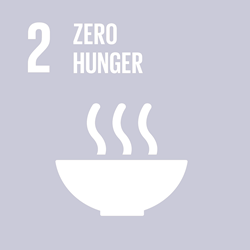


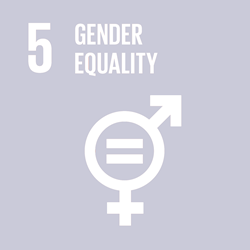


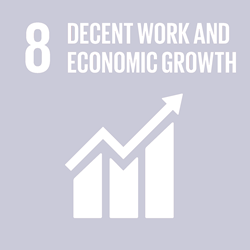





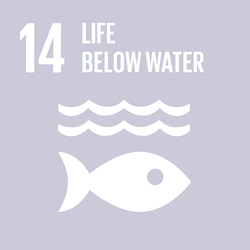



 Please click on the SDG14 colored icon to see to which specific SDG14 targets this initiative is contributing.1. End poverty in all its forms everywhere
Please click on the SDG14 colored icon to see to which specific SDG14 targets this initiative is contributing.1. End poverty in all its forms everywhere
2 End hunger, achieve food security and improved nutrition and promote sustainable agriculture
3 Ensure healthy lives and promote well-being for all at all ages
4 Ensure inclusive and equitable quality education and promote lifelong learning opportunities for all
5 Achieve gender equality and empower all women and girls
6 Ensure availability and sustainable management of water and sanitation for all
7 Ensure access to affordable, reliable, sustainable and modern energy for all
8 Promote sustained, inclusive and sustainable economic growth, full and productive employment and decent work for all
9 Build resilient infrastructure, promote inclusive and sustainable industrialization and foster innovation
10 Reduce inequality within and among countries
11 Make cities and human settlements inclusive, safe, resilient and sustainable
12 Ensure sustainable consumption and production patterns
13 Take urgent action to combat climate change and its impacts
14. Conservar y utilizar en forma sostenible los océanos, los mares y los recursos marinos para el desarrollo sostenible
15 Protect, restore and promote sustainable use of terrestrial ecosystems, sustainably manage forests, combat desertification, and halt and reverse land degradation and halt biodiversity loss
16 Promote peaceful and inclusive societies for sustainable development, provide access to justice for all and build effective, accountable and inclusive institutions at all levels
Otros compromisos regionales o globales
Regional Emerging Issues
FFish sub=project CLME+ Sub-project #3 - EAF for the Eastern Caribbean Flyingfish
 Descripción breve:This Sub-Project aims at contributing to the delivery of Output 3.2. (O3.2.) under COMPONENT 3 of the main CLME+ Project Document: “Transition to an ecosystem approach for the Eastern Caribbean flyingfish fisheries demonstrated” It has been developed in response to the corresponding calls for action under (a) the CLME+ Strategic Action Programme (SAP), politically endorsed at the regional level in 2013 and (b) the approved Regional Fisheries Management Plan (FMP) for Flyingfish in the Eastern Caribbean. More specifically, in the case of the CLME+ SAP, the CLME+ Flyingfish Sub-Project can be linked to SAP Sub-Strategy 5A (and Strategy 5): • Sub-Strategy 5A: Enhance the governance arrangements for implementing an ecosystem approach for flyingfish fisheries • Strategy 5: enhance the governance arrangements for implementing an ecosystem approach for pelagic fisheries. In addition to this, Actions under SAP Strategies 1, 2 and 3, and under CLME+ Project COMPONENTS 1, 2, 4 and 5 will further facilitate the implementation of this Sub-Project, as they help building the support base for its activities, and for the continuation of efforts beyond the Sub-Project’s lifespan. Sub-Project activities will build upon: • the concept of interactive governance, defined as the whole of interactions among public, civil and private actors taken to solve societal problems and to create societal opportunities; including the formulation & application of principles guiding those interactions and care for institutions that enable and control them • the findings from the governance assessments, conducted under the CLME Project (GEF ID 1032) • progress and results from other related regional and national-level efforts Sub-Project activities will further give due attention in the context of interactive governance (societal interactions and the creation of societal opportunities) to gender equality and the empowerment of women. The objectives of the Sub-Project are four-fold, to: a. Foster long-term human well-being of the (direct and indirect) stakeholders of the Eastern Caribbean flyingfish fishery through optimized, sustainable stock management and use b. Full policy cycle implementation at the sub-regional level, through the review, updating, adoption and implementation of the sub-regional management plan for flyingfish fisheries c. Full policy cycle implementation at the national level d. Capture and disseminate best practices and lessons learnt, for the replication and up-scaling of the EAF approach in other CLME+ fisheries These Sub-Project objectives are well aligned with the general management objectives of the approved Sub-Regional Fisheries Management Plan: (a) long-term sustainability of the flyingfish resource (biological objective), (b) optimal use of the flyingfish resource for long-term benefits (socio-economic objective) and (c) sustained ecosystem health (ecological objective). Responsible management in the face of uncertain information on the true status of the flyingfish stock and uncertainties relating to impacts from climate change, requires a precautionary approach.Organización líder: CRFMDonante: GEFID del proyecto:Alcance geográfico: Multicountry (regional)Estado del proyecto: OngoingLast Update: 20200313
Descripción breve:This Sub-Project aims at contributing to the delivery of Output 3.2. (O3.2.) under COMPONENT 3 of the main CLME+ Project Document: “Transition to an ecosystem approach for the Eastern Caribbean flyingfish fisheries demonstrated” It has been developed in response to the corresponding calls for action under (a) the CLME+ Strategic Action Programme (SAP), politically endorsed at the regional level in 2013 and (b) the approved Regional Fisheries Management Plan (FMP) for Flyingfish in the Eastern Caribbean. More specifically, in the case of the CLME+ SAP, the CLME+ Flyingfish Sub-Project can be linked to SAP Sub-Strategy 5A (and Strategy 5): • Sub-Strategy 5A: Enhance the governance arrangements for implementing an ecosystem approach for flyingfish fisheries • Strategy 5: enhance the governance arrangements for implementing an ecosystem approach for pelagic fisheries. In addition to this, Actions under SAP Strategies 1, 2 and 3, and under CLME+ Project COMPONENTS 1, 2, 4 and 5 will further facilitate the implementation of this Sub-Project, as they help building the support base for its activities, and for the continuation of efforts beyond the Sub-Project’s lifespan. Sub-Project activities will build upon: • the concept of interactive governance, defined as the whole of interactions among public, civil and private actors taken to solve societal problems and to create societal opportunities; including the formulation & application of principles guiding those interactions and care for institutions that enable and control them • the findings from the governance assessments, conducted under the CLME Project (GEF ID 1032) • progress and results from other related regional and national-level efforts Sub-Project activities will further give due attention in the context of interactive governance (societal interactions and the creation of societal opportunities) to gender equality and the empowerment of women. The objectives of the Sub-Project are four-fold, to: a. Foster long-term human well-being of the (direct and indirect) stakeholders of the Eastern Caribbean flyingfish fishery through optimized, sustainable stock management and use b. Full policy cycle implementation at the sub-regional level, through the review, updating, adoption and implementation of the sub-regional management plan for flyingfish fisheries c. Full policy cycle implementation at the national level d. Capture and disseminate best practices and lessons learnt, for the replication and up-scaling of the EAF approach in other CLME+ fisheries These Sub-Project objectives are well aligned with the general management objectives of the approved Sub-Regional Fisheries Management Plan: (a) long-term sustainability of the flyingfish resource (biological objective), (b) optimal use of the flyingfish resource for long-term benefits (socio-economic objective) and (c) sustained ecosystem health (ecological objective). Responsible management in the face of uncertain information on the true status of the flyingfish stock and uncertainties relating to impacts from climate change, requires a precautionary approach.Organización líder: CRFMDonante: GEFID del proyecto:Alcance geográfico: Multicountry (regional)Estado del proyecto: OngoingLast Update: 20200313
Fecha de Inicio: 2018-10-24
Fecha de Finalización: 2020-11-11
Documento Oficial del Proyecto : 5Página web:http://www.crfm.intProject Profile Manager: Milton Haughton
Correo de contacto: milton.haughton@crfm.int
Teléfono de contacto: +5012234443Aliados: CLME+ PIUBeca (USD): $834,999.00Co-financiación total (USD): $17,148,741.00(Co) financiación no proveniente de GEF: $17,148,741.00Países participantes:Barbados
Dominica
Grenada
Saint Lucia
Trinidad and Tobago
Saint Vincent and the Grenadines
Contribuciones al Programa de Acciones Estratégicas (PAE) CLME+ (2015-2025)









 Please click on the colored SAP Strategy icon to obtain more information on the specific SAP Actions this initiative is contributing to1. Mejorar los arreglos regionales de gobernanza para la protección del medio ambiente marino
Please click on the colored SAP Strategy icon to obtain more information on the specific SAP Actions this initiative is contributing to1. Mejorar los arreglos regionales de gobernanza para la protección del medio ambiente marino
2. Mejorar los arreglos regionales de gobernanza para la pesca sostenible
3. Establecer y poner en marcha un mecanismo regional de coordinación de políticas para la gobernanza del ambiente marino, con enfoque inicial en los Recursos Marinos Vivos compartidos
4. Mejorar los arreglos de gobernanza para un manejo con enfoque ecosistémico de los arrecifes y sus sistemas asociados
4A. Mejorar los arreglos de gobernanza para la implementación de un enfoque ecosistémico para la pesca de la langosta espinosa
4B. Mejorar los arreglos de gobernanza para la implementación de un enfoque ecosistémico para la pesca del caracol reina
5. Mejorar los arreglos de gobernanza para la implementación de un enfoque ecosistémico para las pesquerías pelágicas
5A. Mejorar los arreglos de gobernanza para la implementación de un enfoque ecosistémico para las pesquerías del pez volador
5B. Mejorar los arreglos de gobernanza para la implementación de un enfoque ecosistémico para las pesquerías de grandes pelágicos
6. Implementar un manejo ecosistémico y el enfoque ecosistémico a la pesca (MBE/EEP) en la Plataforma Continental de Guayanas-Brasil, con referencia especial a las pesquerías de camarones y de peces de fondo
Contribuciones a la Agenda 2030 de Objetivos de Desarrollo Sostenible (ODS) de Naciones Unidas (ONU)

















 Please click on the SDG14 colored icon to see to which specific SDG14 targets this initiative is contributing.1. End poverty in all its forms everywhere
Please click on the SDG14 colored icon to see to which specific SDG14 targets this initiative is contributing.1. End poverty in all its forms everywhere
1.1 By 2030, eradicate extreme poverty for all people everywhere, currently measured as people living on less than $1.25 a day2 End hunger, achieve food security and improved nutrition and promote sustainable agriculture
3 Ensure healthy lives and promote well-being for all at all ages
4 Ensure inclusive and equitable quality education and promote lifelong learning opportunities for all
5 Achieve gender equality and empower all women and girls
5.1 End all forms of discrimination against all women and girls everywhere6 Ensure availability and sustainable management of water and sanitation for all
7 Ensure access to affordable, reliable, sustainable and modern energy for all
8 Promote sustained, inclusive and sustainable economic growth, full and productive employment and decent work for all
9 Build resilient infrastructure, promote inclusive and sustainable industrialization and foster innovation
10 Reduce inequality within and among countries
11 Make cities and human settlements inclusive, safe, resilient and sustainable
12 Ensure sustainable consumption and production patterns
13 Take urgent action to combat climate change and its impacts
14. Conservar y utilizar en forma sostenible los océanos, los mares y los recursos marinos para el desarrollo sostenible
14.7 De aquí a 2030, aumentar los beneficios económicos que los pequeños Estados insulares en desarrollo y los países menos adelantados obtienen del uso sostenible de los recursos marinos, en particular mediante la gestión sostenible de la pesca, la acuicultura y el turismo14.b Facilitar el acceso de los pescadores artesanales a los recursos marinos y los mercados15 Protect, restore and promote sustainable use of terrestrial ecosystems, sustainably manage forests, combat desertification, and halt and reverse land degradation and halt biodiversity loss
16 Promote peaceful and inclusive societies for sustainable development, provide access to justice for all and build effective, accountable and inclusive institutions at all levels
Otros compromisos regionales o globales
Regional Emerging Issues
NBS Mangrove Project Setting the foundations for zero net loss of the mangroves that underpin human wellbeing in the North Brazil Shelf LME
 Descripción breve:The NBS Mangrove Project, was an 18 month project organised under a single component to help establish a shared and multi-national process for an Integrated Coastal Management (ICM) in the NBS. The project recognises the prevalence, socio-ecological importance and connectivity of mangroves in the retention and generation of key ecosystem services (fisheries, coastal protection and defences, water quality, blue carbon etc.) from which communities in the NBS countries are beneficiaries. The countries of Suriname and Guyana were prioritised to consolidate and improve the technical knowledge base necessary to further national and complementary regional coastal management strategies with neighbouring countries Brazil (Amapa state) and French Guiana. In this sense the project builds on, and supports, the antecedents and key elements of the regional agreement established within the CLME+SAP relevant for the NBS region. The objectives of the NBS Mangrove Project are: 1. To generate the necessary baseline knowledge and technical assessments as inputs towards a collaborative vision and a coordinated well-informed management of NBS mangrove systems, with emphasis on the information needs of Guyana and Suriname. 2. To support development of transboundary coordination mechanism(s) between the countries of Guyana, Suriname, French Guiana, and Brazil (state of Amapá) towards the improved integrated coastal management of the extensive, ecologically connected yet vulnerable mangrove habitat of the NBS region. The project developed a series of studies and technical outputs to better understand and manage mangrove habitats and coastal ecosystems to the benefit of human well-being in the North Brazil Shelf Large Marine Ecosystem Region.Organización líder: CI & IUCNDonante: GEFID del proyecto: 9949Alcance geográfico: Multicountry (regional)Estado del proyecto: CompletedLast Update: 20200313
Descripción breve:The NBS Mangrove Project, was an 18 month project organised under a single component to help establish a shared and multi-national process for an Integrated Coastal Management (ICM) in the NBS. The project recognises the prevalence, socio-ecological importance and connectivity of mangroves in the retention and generation of key ecosystem services (fisheries, coastal protection and defences, water quality, blue carbon etc.) from which communities in the NBS countries are beneficiaries. The countries of Suriname and Guyana were prioritised to consolidate and improve the technical knowledge base necessary to further national and complementary regional coastal management strategies with neighbouring countries Brazil (Amapa state) and French Guiana. In this sense the project builds on, and supports, the antecedents and key elements of the regional agreement established within the CLME+SAP relevant for the NBS region. The objectives of the NBS Mangrove Project are: 1. To generate the necessary baseline knowledge and technical assessments as inputs towards a collaborative vision and a coordinated well-informed management of NBS mangrove systems, with emphasis on the information needs of Guyana and Suriname. 2. To support development of transboundary coordination mechanism(s) between the countries of Guyana, Suriname, French Guiana, and Brazil (state of Amapá) towards the improved integrated coastal management of the extensive, ecologically connected yet vulnerable mangrove habitat of the NBS region. The project developed a series of studies and technical outputs to better understand and manage mangrove habitats and coastal ecosystems to the benefit of human well-being in the North Brazil Shelf Large Marine Ecosystem Region.Organización líder: CI & IUCNDonante: GEFID del proyecto: 9949Alcance geográfico: Multicountry (regional)Estado del proyecto: CompletedLast Update: 20200313
Fecha de Inicio: 2018-04-01
Fecha de Finalización: 2020-01-31
Documento Oficial del Proyecto : 5Página web:https://nbslmegef.wordpress.com/Project Profile Manager: Emilio Cobo
Correo de contacto: emilio.cobo@iucn.org
Teléfono de contacto:Aliados: CI - IUCNBeca (USD): $592,292.00Co-financiación total (USD): $838,259.00(Co) financiación no proveniente de GEF:Países participantes:Guyana
Suriname
Contribuciones al Programa de Acciones Estratégicas (PAE) CLME+ (2015-2025)
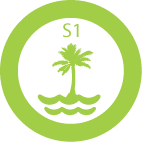

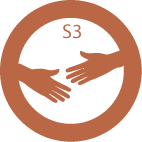
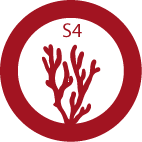





 Please click on the colored SAP Strategy icon to obtain more information on the specific SAP Actions this initiative is contributing to1. Mejorar los arreglos regionales de gobernanza para la protección del medio ambiente marino
Please click on the colored SAP Strategy icon to obtain more information on the specific SAP Actions this initiative is contributing to1. Mejorar los arreglos regionales de gobernanza para la protección del medio ambiente marino
1.2 Establecer y fortalecer los arreglos regionales de coordinación y cooperación institucional1.5 Mejorar la capacidad de los arreglos de gobernanza regionales, subregionales y nacionales para lograr una mayor participación de la sociedad civil en la implementación del enfoque MBE/EEP (OIGs, ONGs, OCs, sector privado...)1.6 Mejorar la capacidad, al interior de y entre los distintos arreglos, para el manejo del conocimiento y para la integración de las lecciones aprendidas y los hallazgos obtenidos a partir del monitoreo, la ciencia y la investigación, en los procesos de toma de decisiones al nivel regional, subregional y nacional1.7 Establecer y/o mejorar la capacidad, al interior de y entre los distintos arreglos, para valorar los bienes y servicios ecosistémicos, así como para lograr la consideración integral de estos valores en la toma de decisiones y el desarrollo de políticas a nivel regional, subregional y nacional1.8 Establecer y/o aumentar la capacidad de las organizaciones (sub)regionales y de los países para integrar el manejo de cuencas terrestres y desarrollo costero con el manejo de sus cuencas marinas receptoras (GEMC y GEMPNB)1.10 Establecer y/o mejorar la calidad de los datos e información, y la capacidad de recolección y manejo de datos e información de los arreglos de gobernanza regionales, subregionales y nacionales, incluyendo mediante el establecimiento de alianzas público-privadas1.11 Establecer y/o mejorar la capacidad de los arreglos de gobernanza regionales, subregionales y nacionales para el monitoreo, evaluación y reporteo sobre el estado del medio ambiente marino2. Mejorar los arreglos regionales de gobernanza para la pesca sostenible
3. Establecer y poner en marcha un mecanismo regional de coordinación de políticas para la gobernanza del ambiente marino, con enfoque inicial en los Recursos Marinos Vivos compartidos
3.4 Desarrollar y adoptar una política regional para la armonización y el intercambio de datos e información3.6 Desarrollar y coordinar estrategias integrales y sostenibles de financiación para la implementación costo-efectiva de una gobernanza marina más amplia en la región, con enfoque de corto y mediano plazo en la gobernanza de los RMVc3.7 Facilitar la preparación de productos de datos e información, así como la inclusión de los resultados de actividades de monitoreo e investigación en las interfaces regional, subregional y nacional de ciencias-política.4. Mejorar los arreglos de gobernanza para un manejo con enfoque ecosistémico de los arrecifes y sus sistemas asociados
4.5 Desarrollar e implementar iniciativas de medios sostenibles de sustento, mediante el desarrollo de capacidades para la diversificación, promoviendo y facilitando alternativas viables de Trabajo Digno y/o de mejores ingresos, y la creación de valor agregado (por ej. a través de mercadeo y ventas)4A. Mejorar los arreglos de gobernanza para la implementación de un enfoque ecosistémico para la pesca de la langosta espinosa
4B. Mejorar los arreglos de gobernanza para la implementación de un enfoque ecosistémico para la pesca del caracol reina
5. Mejorar los arreglos de gobernanza para la implementación de un enfoque ecosistémico para las pesquerías pelágicas
5A. Mejorar los arreglos de gobernanza para la implementación de un enfoque ecosistémico para las pesquerías del pez volador
5B. Mejorar los arreglos de gobernanza para la implementación de un enfoque ecosistémico para las pesquerías de grandes pelágicos
6. Implementar un manejo ecosistémico y el enfoque ecosistémico a la pesca (MBE/EEP) en la Plataforma Continental de Guayanas-Brasil, con referencia especial a las pesquerías de camarones y de peces de fondo
Contribuciones a la Agenda 2030 de Objetivos de Desarrollo Sostenible (ODS) de Naciones Unidas (ONU)












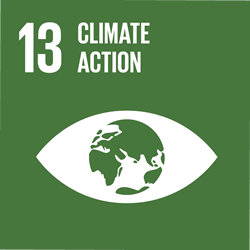

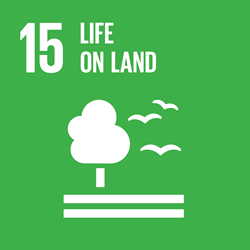

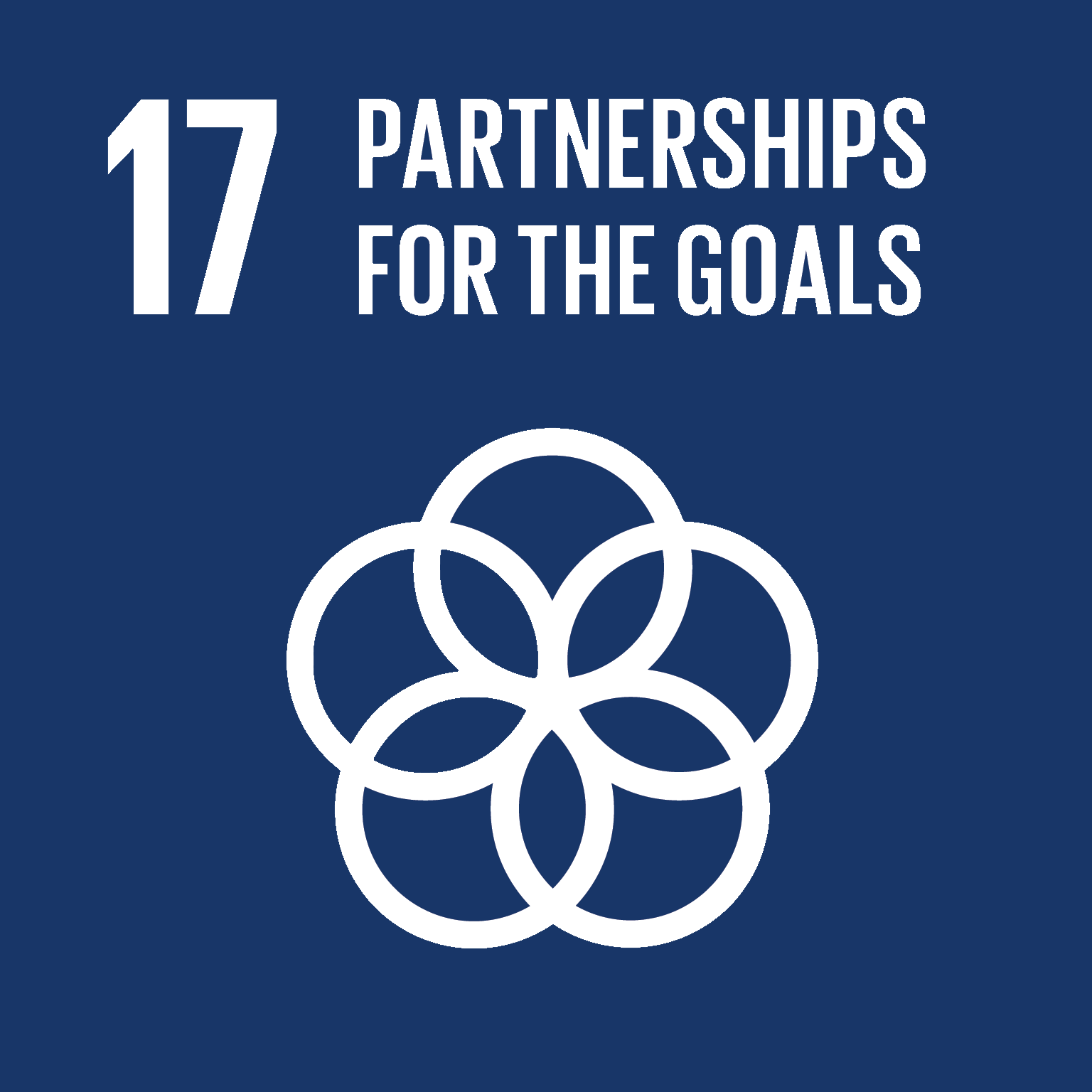
 Please click on the SDG14 colored icon to see to which specific SDG14 targets this initiative is contributing.1. End poverty in all its forms everywhere
Please click on the SDG14 colored icon to see to which specific SDG14 targets this initiative is contributing.1. End poverty in all its forms everywhere
2 End hunger, achieve food security and improved nutrition and promote sustainable agriculture
3 Ensure healthy lives and promote well-being for all at all ages
4 Ensure inclusive and equitable quality education and promote lifelong learning opportunities for all
5 Achieve gender equality and empower all women and girls
6 Ensure availability and sustainable management of water and sanitation for all
7 Ensure access to affordable, reliable, sustainable and modern energy for all
8 Promote sustained, inclusive and sustainable economic growth, full and productive employment and decent work for all
9 Build resilient infrastructure, promote inclusive and sustainable industrialization and foster innovation
10 Reduce inequality within and among countries
11 Make cities and human settlements inclusive, safe, resilient and sustainable
12 Ensure sustainable consumption and production patterns
13 Take urgent action to combat climate change and its impacts
13.1 Strengthen resilience and adaptive capacity to climate-related hazards and natural disasters in all countries14. Conservar y utilizar en forma sostenible los océanos, los mares y los recursos marinos para el desarrollo sostenible
14.2 De aquí a 2020, gestionar y proteger sosteniblemente los ecosistemas marinos y costeros para evitar efectos adversos importantes, incluso fortaleciendo su resiliencia, y adoptar medidas para restaurarlos a fin de restablecer la salud y la productividad de los océanos14.5 De aquí a 2020, conservar al menos el 10% de las zonas costeras y marinas, de conformidad con las leyes nacionales y el derecho internacional y sobre la base de la mejor información científica disponible14.a Aumentar los conocimientos científicos, desarrollar la capacidad de investigación y transferir tecnología marina, teniendo en cuenta los Criterios y Directrices para la Transferencia de Tecnología Marina de la Comisión Oceanográfica Intergubernamental, a fin de mejorar la salud de los océanos y potenciar la contribución de la biodiversidad marina al desarrollo de los países en desarrollo, en particular los pequeños Estados insulares en desarrollo y los países menos adelantados15 Protect, restore and promote sustainable use of terrestrial ecosystems, sustainably manage forests, combat desertification, and halt and reverse land degradation and halt biodiversity loss
15.1 By 2020, ensure the conservation, restoration and sustainable use of terrestrial and inland freshwater ecosystems and their services, in particular forests, wetlands, mountains and drylands, in line with obligations under international agreements16 Promote peaceful and inclusive societies for sustainable development, provide access to justice for all and build effective, accountable and inclusive institutions at all levels
Otros compromisos regionales o globales
Regional Emerging Issues
CLME PIMS 2193 - Sustainable Management of the Shared Living Marine Resources of the Caribbean Large Marine Ecosystem (CLME) and Adjacent Regions
 PIMS 2193- Manejo Sostenible de los Recursos Marinos Vivos Compartidos del Gran Ecosistema Marino del Caribe (CLME) y Regiones AdyacentesDescripción breve:A preliminary Transboundary Diagnostic Analysis (TDA) identified three priority transboundary problems that affect the Caribbean Large Marine Ecosystem (CLME) and Adjacent Regions: • Unsustainable exploitation of fish and other living marine resources • Habitat degradation and community modification • Pollution The final TDAs prepared under the full-sized CLME Project serve as the scientific basis for the development of an agreed program of interventions (called “SAP”), which may include policy, legal and institutional reforms, conservation measures and pollution control. This Strategic Action Programme (SAP) will document the shared, and commonly-agreed upon vision of the countries participating in the CLME Project with regard to the priority interventions, reforms, and investments that are required to ensure the sustainable provision of goods and services from living marine resources in the Wider Caribbean Region (WCR). More specifically, the CLME Project will facilitate the strengthening of the governance of key fishery ecosystems in the WCR, at the regional, sub-regional and national levels. For this purpose, CLME will give particular attention to the strengthening of horizontal and vertical (technical and political) linkages between existing structures. To assist this process, the project will create an integrated Information Management System (IMS), bringing together congruent fisheries, biological, pollution, and socio-economic data and information as a powerful management tool. Similarly, a framework for periodic monitoring and evaluation of progress towards the achievement of the CLME goals and objectives will be developed.La visión de la intervención del GEF será la de asistir a los países del Caribe, por medio de un enfoque a nivel de ecosistema, para mejorar el manejo de sus recursos marinos vivos compartidos; la mayoría de los cuales se considera están completamente explotados o sobre-explotados. Un Análisis de Diagnóstico Transfronterizo preliminar (TDA por sus siglas en inglés) identificó tres problemas transfronterizos prioritarios que afectan el Gran Ecosistema Marino del Caribe (GEM Caribe): la explotación insostenible del recurso pesquero y otros recursos vivos, la degradación del hábitat y las modificaciones y contaminación de las comunidades. El ADT final proporcionará la base científica para el desarrollo un progarama de intervenciones, incluyendo reformas en pesquería, medidas de conservación y control de la contaminación. Un Programa de Acción Estratégica (PAE) con una visión compartida para el GEM Caribe se desarrollará y se llegará a un acuerdo en cuanto a las intervenciones, reformas e inversiones prioritarias requeridas. El proyecto propuesto facilitará el fortalecimiento de la gobernabilidad de las pesquerías en el Caribe, a nivel regional, sub-regional y nacional, trabajando a través de estructuras existentes, fortaleciendo vínculos horizontales y verticales tanto en el ámbito político como en el técnico. Para apoyar este proceso, el proyecto creará un sistema integrado de manejo de información, que compilará datos e información armonizada biológica, sociológica, de pesquerías y de contaminación como una poderosa herramienta de gestión. Igualmente, se desarrollará un marco de monitoreo y evaluación, y un Programa de Monitoreo Ambiental Regional. Proyectos piloto de pesquerías transfronterizas específicas (langosta espinosa y peces de arrecife) revisarán los modelos de gobernabilidad a nivel local, nacional y sub-regional, y proveerán conocimiento adicional en materia de la aplicación de enfoques con base en ecosistema al manejo de las pesquerías y la evaluación aspectos importantes socioeconómicos de las pesquerías.Organización líder: UNDPDonante: GEFID del proyecto: 00060566Alcance geográfico: Multicountry (regional)Estado del proyecto: CompletedLast Update: 20200312
PIMS 2193- Manejo Sostenible de los Recursos Marinos Vivos Compartidos del Gran Ecosistema Marino del Caribe (CLME) y Regiones AdyacentesDescripción breve:A preliminary Transboundary Diagnostic Analysis (TDA) identified three priority transboundary problems that affect the Caribbean Large Marine Ecosystem (CLME) and Adjacent Regions: • Unsustainable exploitation of fish and other living marine resources • Habitat degradation and community modification • Pollution The final TDAs prepared under the full-sized CLME Project serve as the scientific basis for the development of an agreed program of interventions (called “SAP”), which may include policy, legal and institutional reforms, conservation measures and pollution control. This Strategic Action Programme (SAP) will document the shared, and commonly-agreed upon vision of the countries participating in the CLME Project with regard to the priority interventions, reforms, and investments that are required to ensure the sustainable provision of goods and services from living marine resources in the Wider Caribbean Region (WCR). More specifically, the CLME Project will facilitate the strengthening of the governance of key fishery ecosystems in the WCR, at the regional, sub-regional and national levels. For this purpose, CLME will give particular attention to the strengthening of horizontal and vertical (technical and political) linkages between existing structures. To assist this process, the project will create an integrated Information Management System (IMS), bringing together congruent fisheries, biological, pollution, and socio-economic data and information as a powerful management tool. Similarly, a framework for periodic monitoring and evaluation of progress towards the achievement of the CLME goals and objectives will be developed.La visión de la intervención del GEF será la de asistir a los países del Caribe, por medio de un enfoque a nivel de ecosistema, para mejorar el manejo de sus recursos marinos vivos compartidos; la mayoría de los cuales se considera están completamente explotados o sobre-explotados. Un Análisis de Diagnóstico Transfronterizo preliminar (TDA por sus siglas en inglés) identificó tres problemas transfronterizos prioritarios que afectan el Gran Ecosistema Marino del Caribe (GEM Caribe): la explotación insostenible del recurso pesquero y otros recursos vivos, la degradación del hábitat y las modificaciones y contaminación de las comunidades. El ADT final proporcionará la base científica para el desarrollo un progarama de intervenciones, incluyendo reformas en pesquería, medidas de conservación y control de la contaminación. Un Programa de Acción Estratégica (PAE) con una visión compartida para el GEM Caribe se desarrollará y se llegará a un acuerdo en cuanto a las intervenciones, reformas e inversiones prioritarias requeridas. El proyecto propuesto facilitará el fortalecimiento de la gobernabilidad de las pesquerías en el Caribe, a nivel regional, sub-regional y nacional, trabajando a través de estructuras existentes, fortaleciendo vínculos horizontales y verticales tanto en el ámbito político como en el técnico. Para apoyar este proceso, el proyecto creará un sistema integrado de manejo de información, que compilará datos e información armonizada biológica, sociológica, de pesquerías y de contaminación como una poderosa herramienta de gestión. Igualmente, se desarrollará un marco de monitoreo y evaluación, y un Programa de Monitoreo Ambiental Regional. Proyectos piloto de pesquerías transfronterizas específicas (langosta espinosa y peces de arrecife) revisarán los modelos de gobernabilidad a nivel local, nacional y sub-regional, y proveerán conocimiento adicional en materia de la aplicación de enfoques con base en ecosistema al manejo de las pesquerías y la evaluación aspectos importantes socioeconómicos de las pesquerías.Organización líder: UNDPDonante: GEFID del proyecto: 00060566Alcance geográfico: Multicountry (regional)Estado del proyecto: CompletedLast Update: 20200312
Fecha de Inicio: 2009-05-01
Fecha de Finalización: 2014-07-31
Documento Oficial del Proyecto : 5Página web:https://www.clmeproject.org/phaseone/Project Profile Manager: Patrick Debels
Correo de contacto: patrickd@unops.org
Teléfono de contacto: +57 5 664 82 92 ext 106Aliados: UNEP, FAO, UNESCO, OSPESCA, CRFM, CERMESBeca (USD): $7,008,116.00Co-financiación total (USD): $47,591,111.00(Co) financiación no proveniente de GEF:Países participantes:Belize
Brazil
Colombia
Costa Rica
Guatemala
Guyana
Honduras
Panama
Mexico
Nicaragua
Suriname
Venezuela
United States of America
Bahamas
Barbados
Dominica
Dominican Republic
Grenada
Haiti
Jamaica
Saint Lucia
Trinidad and Tobago
Antigua and Barbuda
Saint Kitts and Nevis
Saint Vincent and the Grenadines
Contribuciones al Programa de Acciones Estratégicas (PAE) CLME+ (2015-2025)









 Please click on the colored SAP Strategy icon to obtain more information on the specific SAP Actions this initiative is contributing to1. Mejorar los arreglos regionales de gobernanza para la protección del medio ambiente marino
Please click on the colored SAP Strategy icon to obtain more information on the specific SAP Actions this initiative is contributing to1. Mejorar los arreglos regionales de gobernanza para la protección del medio ambiente marino
2. Mejorar los arreglos regionales de gobernanza para la pesca sostenible
3. Establecer y poner en marcha un mecanismo regional de coordinación de políticas para la gobernanza del ambiente marino, con enfoque inicial en los Recursos Marinos Vivos compartidos
4. Mejorar los arreglos de gobernanza para un manejo con enfoque ecosistémico de los arrecifes y sus sistemas asociados
4A. Mejorar los arreglos de gobernanza para la implementación de un enfoque ecosistémico para la pesca de la langosta espinosa
4B. Mejorar los arreglos de gobernanza para la implementación de un enfoque ecosistémico para la pesca del caracol reina
5. Mejorar los arreglos de gobernanza para la implementación de un enfoque ecosistémico para las pesquerías pelágicas
5A. Mejorar los arreglos de gobernanza para la implementación de un enfoque ecosistémico para las pesquerías del pez volador
5B. Mejorar los arreglos de gobernanza para la implementación de un enfoque ecosistémico para las pesquerías de grandes pelágicos
6. Implementar un manejo ecosistémico y el enfoque ecosistémico a la pesca (MBE/EEP) en la Plataforma Continental de Guayanas-Brasil, con referencia especial a las pesquerías de camarones y de peces de fondo
Contribuciones a la Agenda 2030 de Objetivos de Desarrollo Sostenible (ODS) de Naciones Unidas (ONU)

















 Please click on the SDG14 colored icon to see to which specific SDG14 targets this initiative is contributing.1. End poverty in all its forms everywhere
Please click on the SDG14 colored icon to see to which specific SDG14 targets this initiative is contributing.1. End poverty in all its forms everywhere
2 End hunger, achieve food security and improved nutrition and promote sustainable agriculture
3 Ensure healthy lives and promote well-being for all at all ages
4 Ensure inclusive and equitable quality education and promote lifelong learning opportunities for all
5 Achieve gender equality and empower all women and girls
6 Ensure availability and sustainable management of water and sanitation for all
7 Ensure access to affordable, reliable, sustainable and modern energy for all
8 Promote sustained, inclusive and sustainable economic growth, full and productive employment and decent work for all
9 Build resilient infrastructure, promote inclusive and sustainable industrialization and foster innovation
10 Reduce inequality within and among countries
11 Make cities and human settlements inclusive, safe, resilient and sustainable
12 Ensure sustainable consumption and production patterns
13 Take urgent action to combat climate change and its impacts
14. Conservar y utilizar en forma sostenible los océanos, los mares y los recursos marinos para el desarrollo sostenible
15 Protect, restore and promote sustainable use of terrestrial ecosystems, sustainably manage forests, combat desertification, and halt and reverse land degradation and halt biodiversity loss
16 Promote peaceful and inclusive societies for sustainable development, provide access to justice for all and build effective, accountable and inclusive institutions at all levels
Otros compromisos regionales o globales
Regional Emerging Issues
IDB Blue Economy RG-T3342 Unleashing New Avenues for Growth by Tackling Opportunities in the Blue Economy
Descripción breve:The objective of this Technical Cooperation is to support policy action conducive to broaden and accelerate economic growth and inclusive development in the Caribbean by enhancing the economic potential of the Blue Economy under a sustainable growth framework. It targets the effective implementation of policies in small island states in the Caribbean in an area in which new avenues for growth have been identified and have not yet been exploited to its full potential due to a series of bottlenecks to be further identified.Organización líder: IDBDonante: IDBID del proyecto:Alcance geográfico: Multicountry (regional)Estado del proyecto: OngoingLast Update: 20200311
Fecha de Inicio: 2018-12-10
Fecha de Finalización: 2020-12-10
Documento Oficial del Proyecto : 5Página web:Project Profile Manager: CLME+ ICM Secretariat
Correo de contacto: info@clmeplus.org
Teléfono de contacto:Aliados: CTI, CCBBeca (USD): $600,000.00Co-financiación total (USD): $0.00(Co) financiación no proveniente de GEF:Países participantes:Guyana
Suriname
Bahamas
Barbados
Jamaica
Trinidad and Tobago
Contribuciones al Programa de Acciones Estratégicas (PAE) CLME+ (2015-2025)









 Please click on the colored SAP Strategy icon to obtain more information on the specific SAP Actions this initiative is contributing to1. Mejorar los arreglos regionales de gobernanza para la protección del medio ambiente marino
Please click on the colored SAP Strategy icon to obtain more information on the specific SAP Actions this initiative is contributing to1. Mejorar los arreglos regionales de gobernanza para la protección del medio ambiente marino
2. Mejorar los arreglos regionales de gobernanza para la pesca sostenible
3. Establecer y poner en marcha un mecanismo regional de coordinación de políticas para la gobernanza del ambiente marino, con enfoque inicial en los Recursos Marinos Vivos compartidos
4. Mejorar los arreglos de gobernanza para un manejo con enfoque ecosistémico de los arrecifes y sus sistemas asociados
4A. Mejorar los arreglos de gobernanza para la implementación de un enfoque ecosistémico para la pesca de la langosta espinosa
4B. Mejorar los arreglos de gobernanza para la implementación de un enfoque ecosistémico para la pesca del caracol reina
5. Mejorar los arreglos de gobernanza para la implementación de un enfoque ecosistémico para las pesquerías pelágicas
5A. Mejorar los arreglos de gobernanza para la implementación de un enfoque ecosistémico para las pesquerías del pez volador
5B. Mejorar los arreglos de gobernanza para la implementación de un enfoque ecosistémico para las pesquerías de grandes pelágicos
6. Implementar un manejo ecosistémico y el enfoque ecosistémico a la pesca (MBE/EEP) en la Plataforma Continental de Guayanas-Brasil, con referencia especial a las pesquerías de camarones y de peces de fondo
Contribuciones a la Agenda 2030 de Objetivos de Desarrollo Sostenible (ODS) de Naciones Unidas (ONU)

















 Please click on the SDG14 colored icon to see to which specific SDG14 targets this initiative is contributing.1. End poverty in all its forms everywhere
Please click on the SDG14 colored icon to see to which specific SDG14 targets this initiative is contributing.1. End poverty in all its forms everywhere
2 End hunger, achieve food security and improved nutrition and promote sustainable agriculture
3 Ensure healthy lives and promote well-being for all at all ages
4 Ensure inclusive and equitable quality education and promote lifelong learning opportunities for all
5 Achieve gender equality and empower all women and girls
6 Ensure availability and sustainable management of water and sanitation for all
7 Ensure access to affordable, reliable, sustainable and modern energy for all
8 Promote sustained, inclusive and sustainable economic growth, full and productive employment and decent work for all
9 Build resilient infrastructure, promote inclusive and sustainable industrialization and foster innovation
10 Reduce inequality within and among countries
11 Make cities and human settlements inclusive, safe, resilient and sustainable
12 Ensure sustainable consumption and production patterns
13 Take urgent action to combat climate change and its impacts
14. Conservar y utilizar en forma sostenible los océanos, los mares y los recursos marinos para el desarrollo sostenible
15 Protect, restore and promote sustainable use of terrestrial ecosystems, sustainably manage forests, combat desertification, and halt and reverse land degradation and halt biodiversity loss
16 Promote peaceful and inclusive societies for sustainable development, provide access to justice for all and build effective, accountable and inclusive institutions at all levels
Otros compromisos regionales o globales
Regional Emerging Issues
Rehabilitation of Heavily Contaminated Bays Demonstrations of Innovative Approaches to the Rehabilitation of Heavily Contaminated Bays in the Wider Caribbean
Descripción breve:This initiative is a follow up of the Pilot Phase PRIF project “planning and Management of Heavily Contaminated Bays and Coastal Areas in the Wider Caribbean”; the project areas were Havana Bay (Cuba), Puerto Limon (Costa Rica0, Cartagena Bay (Colombia) and Kingston Harbour (Jamaica). This PRIF project resulted in the development of investment and institutional strenghtening plans and in the identification of sources of financing for the implementation of remedial actions. Leveraged baseline investments in the four bays were in excess of $250 million. As a follow-up to the PRIF and on-going baseline, the proposed GEF project will leverage national co-financing to help two of the countries to overcome a number of key barriers to the adoption of best practices that limit the contamination of their national and adjacent international waters. This would be achieved by implementing demonstration/pilot projects for reducing the input of priority transboundary contaminants, the nutrients nitrogen and phosphorus, to havana Bay, Kingston Harbour and the adjacent Wider Caribbean. The project will also strengthen and/or help create new institutions responsible for the rehabilitation and sustainable management of the two bays. The project supports the mandate of the Cartagena Convention (Art.7 and Art. 13) as well as the new Land-Based Sources Protocol currently in preparation. UNEP, the co-implementing agency, will be responsible for the regional coordination, and for the sharing and dissemination of nutrient pollution control strategies in the Wider Caribbean region.Organización líder: UNDPDonante: GEFID del proyecto: 614Alcance geográfico: Multicountry (regional)Estado del proyecto: CompletedLast Update: 20200309
Fecha de Inicio: 2002-04-25
Fecha de Finalización: 2011-12-30
Documento Oficial del Proyecto : 5Página web:https://iwlearn.net/iw-projects/614Project Profile Manager: GEF IW:LEARN
Correo de contacto: info@iwlearn.org
Teléfono de contacto:Aliados: UNEP CAR/RCU, CEP, UNOPSBeca (USD): $6,910,000.00Co-financiación total (USD): $32,770,000.00(Co) financiación no proveniente de GEF:Países participantes:Colombia
Costa Rica
Cuba
Jamaica
Contribuciones al Programa de Acciones Estratégicas (PAE) CLME+ (2015-2025)









 Please click on the colored SAP Strategy icon to obtain more information on the specific SAP Actions this initiative is contributing to1. Mejorar los arreglos regionales de gobernanza para la protección del medio ambiente marino
Please click on the colored SAP Strategy icon to obtain more information on the specific SAP Actions this initiative is contributing to1. Mejorar los arreglos regionales de gobernanza para la protección del medio ambiente marino
2. Mejorar los arreglos regionales de gobernanza para la pesca sostenible
3. Establecer y poner en marcha un mecanismo regional de coordinación de políticas para la gobernanza del ambiente marino, con enfoque inicial en los Recursos Marinos Vivos compartidos
4. Mejorar los arreglos de gobernanza para un manejo con enfoque ecosistémico de los arrecifes y sus sistemas asociados
4A. Mejorar los arreglos de gobernanza para la implementación de un enfoque ecosistémico para la pesca de la langosta espinosa
4B. Mejorar los arreglos de gobernanza para la implementación de un enfoque ecosistémico para la pesca del caracol reina
5. Mejorar los arreglos de gobernanza para la implementación de un enfoque ecosistémico para las pesquerías pelágicas
5A. Mejorar los arreglos de gobernanza para la implementación de un enfoque ecosistémico para las pesquerías del pez volador
5B. Mejorar los arreglos de gobernanza para la implementación de un enfoque ecosistémico para las pesquerías de grandes pelágicos
6. Implementar un manejo ecosistémico y el enfoque ecosistémico a la pesca (MBE/EEP) en la Plataforma Continental de Guayanas-Brasil, con referencia especial a las pesquerías de camarones y de peces de fondo
Contribuciones a la Agenda 2030 de Objetivos de Desarrollo Sostenible (ODS) de Naciones Unidas (ONU)

















 Please click on the SDG14 colored icon to see to which specific SDG14 targets this initiative is contributing.1. End poverty in all its forms everywhere
Please click on the SDG14 colored icon to see to which specific SDG14 targets this initiative is contributing.1. End poverty in all its forms everywhere
2 End hunger, achieve food security and improved nutrition and promote sustainable agriculture
3 Ensure healthy lives and promote well-being for all at all ages
4 Ensure inclusive and equitable quality education and promote lifelong learning opportunities for all
5 Achieve gender equality and empower all women and girls
6 Ensure availability and sustainable management of water and sanitation for all
7 Ensure access to affordable, reliable, sustainable and modern energy for all
8 Promote sustained, inclusive and sustainable economic growth, full and productive employment and decent work for all
9 Build resilient infrastructure, promote inclusive and sustainable industrialization and foster innovation
10 Reduce inequality within and among countries
11 Make cities and human settlements inclusive, safe, resilient and sustainable
12 Ensure sustainable consumption and production patterns
13 Take urgent action to combat climate change and its impacts
14. Conservar y utilizar en forma sostenible los océanos, los mares y los recursos marinos para el desarrollo sostenible
15 Protect, restore and promote sustainable use of terrestrial ecosystems, sustainably manage forests, combat desertification, and halt and reverse land degradation and halt biodiversity loss
16 Promote peaceful and inclusive societies for sustainable development, provide access to justice for all and build effective, accountable and inclusive institutions at all levels
Otros compromisos regionales o globales
Regional Emerging Issues
GEF IW:LEARN GEF International Waters Learning Exchange and Resource Network
 Descripción breve:The IW:LEARN project was established to strengthen transboundary water management around the globe by collecting and sharing best practices, lessons learned, and innovative solutions to common problems across the GEF International Waters portfolio. It promotes learning among project managers, country official, implementing agencies, and other partners who are involved directly with the GEF International Waters Portfolio.Organización líder: UNDP-UNEP-IOC UNESCODonante: GEFID del proyecto: 5729Alcance geográfico: Multicountry (global)Estado del proyecto: OngoingLast Update: 20200304
Descripción breve:The IW:LEARN project was established to strengthen transboundary water management around the globe by collecting and sharing best practices, lessons learned, and innovative solutions to common problems across the GEF International Waters portfolio. It promotes learning among project managers, country official, implementing agencies, and other partners who are involved directly with the GEF International Waters Portfolio.Organización líder: UNDP-UNEP-IOC UNESCODonante: GEFID del proyecto: 5729Alcance geográfico: Multicountry (global)Estado del proyecto: OngoingLast Update: 20200304
Fecha de Inicio: 2016-01-01
Fecha de Finalización: 2020-09-30
Documento Oficial del Proyecto : 5Página web:https://iwlearn.net/Project Profile Manager: Mish Hamid
Correo de contacto: mish@iwlearn.org
Teléfono de contacto:Aliados:Beca (USD): $4,987,500.00Co-financiación total (USD): $12,122,316.00(Co) financiación no proveniente de GEF:Países participantes:Brazil
Colombia
Costa Rica
Guatemala
Honduras
Panama
Mexico
Venezuela
Barbados
Dominica
Jamaica
Saint Kitts and Nevis
Angola
Botswana
Cambodia
Cameroon
Chad
Chile
Ecuador
Egypt
Fiji
Guinea
Indonesia
Kenya
Madagascar
Malawi
Malaysia
Micronesia, Federated States Of
Morocco
Mozambique
Namibia
Peru
Philippines
Samoa
Senegal
Solomon Islands
South Africa
Sri Lanka
Thailand
Tuvalu
Uganda
Uruguay
Vanuatu Viet Nam
Contribuciones al Programa de Acciones Estratégicas (PAE) CLME+ (2015-2025)









 Please click on the colored SAP Strategy icon to obtain more information on the specific SAP Actions this initiative is contributing to1. Mejorar los arreglos regionales de gobernanza para la protección del medio ambiente marino
Please click on the colored SAP Strategy icon to obtain more information on the specific SAP Actions this initiative is contributing to1. Mejorar los arreglos regionales de gobernanza para la protección del medio ambiente marino
1.5 Mejorar la capacidad de los arreglos de gobernanza regionales, subregionales y nacionales para lograr una mayor participación de la sociedad civil en la implementación del enfoque MBE/EEP (OIGs, ONGs, OCs, sector privado...)1.6 Mejorar la capacidad, al interior de y entre los distintos arreglos, para el manejo del conocimiento y para la integración de las lecciones aprendidas y los hallazgos obtenidos a partir del monitoreo, la ciencia y la investigación, en los procesos de toma de decisiones al nivel regional, subregional y nacional1.7 Establecer y/o mejorar la capacidad, al interior de y entre los distintos arreglos, para valorar los bienes y servicios ecosistémicos, así como para lograr la consideración integral de estos valores en la toma de decisiones y el desarrollo de políticas a nivel regional, subregional y nacional1.10 Establecer y/o mejorar la calidad de los datos e información, y la capacidad de recolección y manejo de datos e información de los arreglos de gobernanza regionales, subregionales y nacionales, incluyendo mediante el establecimiento de alianzas público-privadas1.11 Establecer y/o mejorar la capacidad de los arreglos de gobernanza regionales, subregionales y nacionales para el monitoreo, evaluación y reporteo sobre el estado del medio ambiente marino2. Mejorar los arreglos regionales de gobernanza para la pesca sostenible
3. Establecer y poner en marcha un mecanismo regional de coordinación de políticas para la gobernanza del ambiente marino, con enfoque inicial en los Recursos Marinos Vivos compartidos
3.2 Evaluar todas las opciones y proponer un mecanismo permanente de coordinación de políticas que tenga un mandato claro, sea financieramente sostenible, geográficamente incluyente y políticamente aceptable, y que considere el principio de subsidiariedad (esto puede incluir la identificación de reformas apropiadas4. Mejorar los arreglos de gobernanza para un manejo con enfoque ecosistémico de los arrecifes y sus sistemas asociados
4.8 Poner en marcha y fortalecer Sistemas de Apoyo a la toma de Decisiones (SAD/DSS) inter-vinculados para la protección de los arrecifes y ecosistemas asociados y para el manejo sostenible de los recursos marinos vivos asociados4A. Mejorar los arreglos de gobernanza para la implementación de un enfoque ecosistémico para la pesca de la langosta espinosa
4B. Mejorar los arreglos de gobernanza para la implementación de un enfoque ecosistémico para la pesca del caracol reina
5. Mejorar los arreglos de gobernanza para la implementación de un enfoque ecosistémico para las pesquerías pelágicas
5A. Mejorar los arreglos de gobernanza para la implementación de un enfoque ecosistémico para las pesquerías del pez volador
5B. Mejorar los arreglos de gobernanza para la implementación de un enfoque ecosistémico para las pesquerías de grandes pelágicos
6. Implementar un manejo ecosistémico y el enfoque ecosistémico a la pesca (MBE/EEP) en la Plataforma Continental de Guayanas-Brasil, con referencia especial a las pesquerías de camarones y de peces de fondo
Contribuciones a la Agenda 2030 de Objetivos de Desarrollo Sostenible (ODS) de Naciones Unidas (ONU)





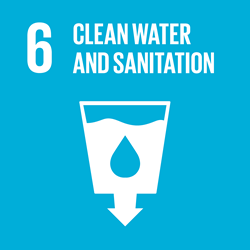











 Please click on the SDG14 colored icon to see to which specific SDG14 targets this initiative is contributing.1. End poverty in all its forms everywhere
Please click on the SDG14 colored icon to see to which specific SDG14 targets this initiative is contributing.1. End poverty in all its forms everywhere
2 End hunger, achieve food security and improved nutrition and promote sustainable agriculture
3 Ensure healthy lives and promote well-being for all at all ages
4 Ensure inclusive and equitable quality education and promote lifelong learning opportunities for all
5 Achieve gender equality and empower all women and girls
6 Ensure availability and sustainable management of water and sanitation for all
6.1 By 2030, achieve universal and equitable access to safe and affordable drinking water for all7 Ensure access to affordable, reliable, sustainable and modern energy for all
8 Promote sustained, inclusive and sustainable economic growth, full and productive employment and decent work for all
9 Build resilient infrastructure, promote inclusive and sustainable industrialization and foster innovation
10 Reduce inequality within and among countries
11 Make cities and human settlements inclusive, safe, resilient and sustainable
12 Ensure sustainable consumption and production patterns
13 Take urgent action to combat climate change and its impacts
14. Conservar y utilizar en forma sostenible los océanos, los mares y los recursos marinos para el desarrollo sostenible
14.a Aumentar los conocimientos científicos, desarrollar la capacidad de investigación y transferir tecnología marina, teniendo en cuenta los Criterios y Directrices para la Transferencia de Tecnología Marina de la Comisión Oceanográfica Intergubernamental, a fin de mejorar la salud de los océanos y potenciar la contribución de la biodiversidad marina al desarrollo de los países en desarrollo, en particular los pequeños Estados insulares en desarrollo y los países menos adelantados15 Protect, restore and promote sustainable use of terrestrial ecosystems, sustainably manage forests, combat desertification, and halt and reverse land degradation and halt biodiversity loss
16 Promote peaceful and inclusive societies for sustainable development, provide access to justice for all and build effective, accountable and inclusive institutions at all levels
Otros compromisos regionales o globales
Regional Emerging Issues
CLME Sustainable Management of the Shared Marine Resources of the Caribbean Large Marine Ecosystem (CLME) and Adjacent Regions
Descripción breve:The specific objectives of the project are: 1.To identify, analyze and agree upon major transboundary issues, root causes and actions required to achieve sustainable management of the shared living marine resources in the Caribbean Sea LME; 2.To improve the shared knowledge base so that sustainable use and management of transboundary living marine resources will be possible; 3.To implement legal, policy and institutional (SAP) reforms regionally and nationally to achieve sustainable transboundary living marine resource management; 4.To develop an institutional and procedural approach to LME level monitoring, evaluation and reporting for management decisionmakingOrganización líder: UNDP, UNOPSDonante: GEFID del proyecto: 1032Alcance geográfico: Multicountry (regional)Estado del proyecto: CompletedLast Update:
Fecha de Inicio: 4/29/2008
Fecha de Finalización: 8/1/2013Página web:Project Profile Manager: Patrick Debels
Correo de contacto: patrickd@unops.org
Teléfono de contacto:Aliados: United Nations Education, Scientific and Cultural Organization (UNESCO)Beca (USD): $7,080,000.00Co-financiación total (USD):(Co) financiación no proveniente de GEF:Países participantes:Belize
Brazil
Colombia
Costa Rica
Guatemala
Guyana
Honduras
Panama
Mexico
Nicaragua
Bahamas
Barbados
Dominica
Dominican Republic
Grenada
Haiti
Jamaica
Saint Lucia
Antigua and Barbuda
Saint Kitts and Nevis
Saint Vincent and the Grenadines United States
Contribuciones al Programa de Acciones Estratégicas (PAE) CLME+ (2015-2025)









 Please click on the colored SAP Strategy icon to obtain more information on the specific SAP Actions this initiative is contributing to1. Mejorar los arreglos regionales de gobernanza para la protección del medio ambiente marino
Please click on the colored SAP Strategy icon to obtain more information on the specific SAP Actions this initiative is contributing to1. Mejorar los arreglos regionales de gobernanza para la protección del medio ambiente marino
2. Mejorar los arreglos regionales de gobernanza para la pesca sostenible
3. Establecer y poner en marcha un mecanismo regional de coordinación de políticas para la gobernanza del ambiente marino, con enfoque inicial en los Recursos Marinos Vivos compartidos
4. Mejorar los arreglos de gobernanza para un manejo con enfoque ecosistémico de los arrecifes y sus sistemas asociados
4A. Mejorar los arreglos de gobernanza para la implementación de un enfoque ecosistémico para la pesca de la langosta espinosa
4B. Mejorar los arreglos de gobernanza para la implementación de un enfoque ecosistémico para la pesca del caracol reina
5. Mejorar los arreglos de gobernanza para la implementación de un enfoque ecosistémico para las pesquerías pelágicas
5A. Mejorar los arreglos de gobernanza para la implementación de un enfoque ecosistémico para las pesquerías del pez volador
5B. Mejorar los arreglos de gobernanza para la implementación de un enfoque ecosistémico para las pesquerías de grandes pelágicos
6. Implementar un manejo ecosistémico y el enfoque ecosistémico a la pesca (MBE/EEP) en la Plataforma Continental de Guayanas-Brasil, con referencia especial a las pesquerías de camarones y de peces de fondo
Contribuciones a la Agenda 2030 de Objetivos de Desarrollo Sostenible (ODS) de Naciones Unidas (ONU)

















 Please click on the SDG14 colored icon to see to which specific SDG14 targets this initiative is contributing.1. End poverty in all its forms everywhere
Please click on the SDG14 colored icon to see to which specific SDG14 targets this initiative is contributing.1. End poverty in all its forms everywhere
2 End hunger, achieve food security and improved nutrition and promote sustainable agriculture
3 Ensure healthy lives and promote well-being for all at all ages
4 Ensure inclusive and equitable quality education and promote lifelong learning opportunities for all
5 Achieve gender equality and empower all women and girls
6 Ensure availability and sustainable management of water and sanitation for all
7 Ensure access to affordable, reliable, sustainable and modern energy for all
8 Promote sustained, inclusive and sustainable economic growth, full and productive employment and decent work for all
9 Build resilient infrastructure, promote inclusive and sustainable industrialization and foster innovation
10 Reduce inequality within and among countries
11 Make cities and human settlements inclusive, safe, resilient and sustainable
12 Ensure sustainable consumption and production patterns
13 Take urgent action to combat climate change and its impacts
14. Conservar y utilizar en forma sostenible los océanos, los mares y los recursos marinos para el desarrollo sostenible
15 Protect, restore and promote sustainable use of terrestrial ecosystems, sustainably manage forests, combat desertification, and halt and reverse land degradation and halt biodiversity loss
16 Promote peaceful and inclusive societies for sustainable development, provide access to justice for all and build effective, accountable and inclusive institutions at all levels
Otros compromisos regionales o globales
Regional Emerging Issues
MAR2R Integrated Transboundary Ridge to Reef Management of the Mesoamerican Reef
Descripción breve:The MAR2R project supports regional collaboration for integrated ridge-to-reef management of the world’s largest transboundary barrier reef, the Mesoamerican Reef, which spans over 1,000 kilometres of coast and is affected by water from four countries: Belize, Guatemala, Honduras and MexicoOrganización líder: WWF, CCADDonante: GEFID del proyecto: 5765Alcance geográfico: Multicountry (regional)Estado del proyecto: OngoingLast Update:
Fecha de Inicio: 2017-05-04
Fecha de Finalización: 2022-01-01
Documento Oficial del Proyecto : 5Página web:Project Profile Manager: Mario Escobedo
Correo de contacto: mescobedo@sica.int
Teléfono de contacto:Aliados: SERNA, CONANP, MARN.Beca (USD):Co-financiación total (USD): $51,277,908.00(Co) financiación no proveniente de GEF:Países participantes:Belize
Guatemala
Honduras
Mexico
Contribuciones al Programa de Acciones Estratégicas (PAE) CLME+ (2015-2025)









 Please click on the colored SAP Strategy icon to obtain more information on the specific SAP Actions this initiative is contributing to1. Mejorar los arreglos regionales de gobernanza para la protección del medio ambiente marino
Please click on the colored SAP Strategy icon to obtain more information on the specific SAP Actions this initiative is contributing to1. Mejorar los arreglos regionales de gobernanza para la protección del medio ambiente marino
1.8 Establecer y/o aumentar la capacidad de las organizaciones (sub)regionales y de los países para integrar el manejo de cuencas terrestres y desarrollo costero con el manejo de sus cuencas marinas receptoras (GEMC y GEMPNB)2. Mejorar los arreglos regionales de gobernanza para la pesca sostenible
3. Establecer y poner en marcha un mecanismo regional de coordinación de políticas para la gobernanza del ambiente marino, con enfoque inicial en los Recursos Marinos Vivos compartidos
4. Mejorar los arreglos de gobernanza para un manejo con enfoque ecosistémico de los arrecifes y sus sistemas asociados
4A. Mejorar los arreglos de gobernanza para la implementación de un enfoque ecosistémico para la pesca de la langosta espinosa
4B. Mejorar los arreglos de gobernanza para la implementación de un enfoque ecosistémico para la pesca del caracol reina
5. Mejorar los arreglos de gobernanza para la implementación de un enfoque ecosistémico para las pesquerías pelágicas
5A. Mejorar los arreglos de gobernanza para la implementación de un enfoque ecosistémico para las pesquerías del pez volador
5B. Mejorar los arreglos de gobernanza para la implementación de un enfoque ecosistémico para las pesquerías de grandes pelágicos
6. Implementar un manejo ecosistémico y el enfoque ecosistémico a la pesca (MBE/EEP) en la Plataforma Continental de Guayanas-Brasil, con referencia especial a las pesquerías de camarones y de peces de fondo
Contribuciones a la Agenda 2030 de Objetivos de Desarrollo Sostenible (ODS) de Naciones Unidas (ONU)

















 Please click on the SDG14 colored icon to see to which specific SDG14 targets this initiative is contributing.1. End poverty in all its forms everywhere
Please click on the SDG14 colored icon to see to which specific SDG14 targets this initiative is contributing.1. End poverty in all its forms everywhere
2 End hunger, achieve food security and improved nutrition and promote sustainable agriculture
3 Ensure healthy lives and promote well-being for all at all ages
4 Ensure inclusive and equitable quality education and promote lifelong learning opportunities for all
5 Achieve gender equality and empower all women and girls
6 Ensure availability and sustainable management of water and sanitation for all
7 Ensure access to affordable, reliable, sustainable and modern energy for all
8 Promote sustained, inclusive and sustainable economic growth, full and productive employment and decent work for all
9 Build resilient infrastructure, promote inclusive and sustainable industrialization and foster innovation
10 Reduce inequality within and among countries
11 Make cities and human settlements inclusive, safe, resilient and sustainable
12 Ensure sustainable consumption and production patterns
13 Take urgent action to combat climate change and its impacts
14. Conservar y utilizar en forma sostenible los océanos, los mares y los recursos marinos para el desarrollo sostenible
15 Protect, restore and promote sustainable use of terrestrial ecosystems, sustainably manage forests, combat desertification, and halt and reverse land degradation and halt biodiversity loss
16 Promote peaceful and inclusive societies for sustainable development, provide access to justice for all and build effective, accountable and inclusive institutions at all levels
Otros compromisos regionales o globales
Regional Emerging Issues
ACERCA DE
DE LA VISIÓN A LA ACCIÓN ESTRATÉGICA
TRABAJANDO JUNTOS
PROYECTOS E INICIATIVAS

ACERCA DE
MenuDE LA VISIÓN A LA ACCIÓN ESTRATÉGICA
MenuTRABAJANDO JUNTOS
MenuPROYECTOS E INICIATIVAS
MenuHERRAMIENTAS
El CLME+ Hub es una iniciativa de la Secretaría del Mecanismo de Coordinación Interino (MIC) del CLME+, en colaboración con los miembros del MIC del CLME+ y el Grupo Ejecutivo del Proyecto (PEG) CLME+ y las (posibles) Organizaciones Aliadas. El desarrollo del Hub se ha beneficiado del apoyo financiero del Proyecto PNUD/FMAM: “Catalizar la implementación del Programa de Acción Estratégica (SAP) para la gestión sostenible de los recursos marinos vivos compartidos en los grandes ecosistemas marinos del Caribe y la plataforma del norte de Brasil” (Proyecto CLME+, 2015-2020). El Proyecto CLME+ es ejecutado por la Oficina de las Naciones Unidas de Servicios para Proyectos (UNOPS) en estrecha colaboración con un gran número de socios a nivel mundial, regional y nacional. Para más información sobre el Proyecto CLME+ click aquí
Copyright © 2021 CLME + HUB
Menu


Política de Cookies
Utilizamos cookies para mejorar su experiencia en el sitio, para ofrecer funcionalidades adicionales y con fines analíticos. Puede expresar su consentimiento hacia el uso de dicha tecnología aceptando y cerrando este aviso. Si quiere saber más, lea nuestra política de cookies aquí.
Welcome to SOMEE
MenuSOMEE content is still under development and is therefore not yet available online. However, you can already check for sample text and materials under the sections in blue text










